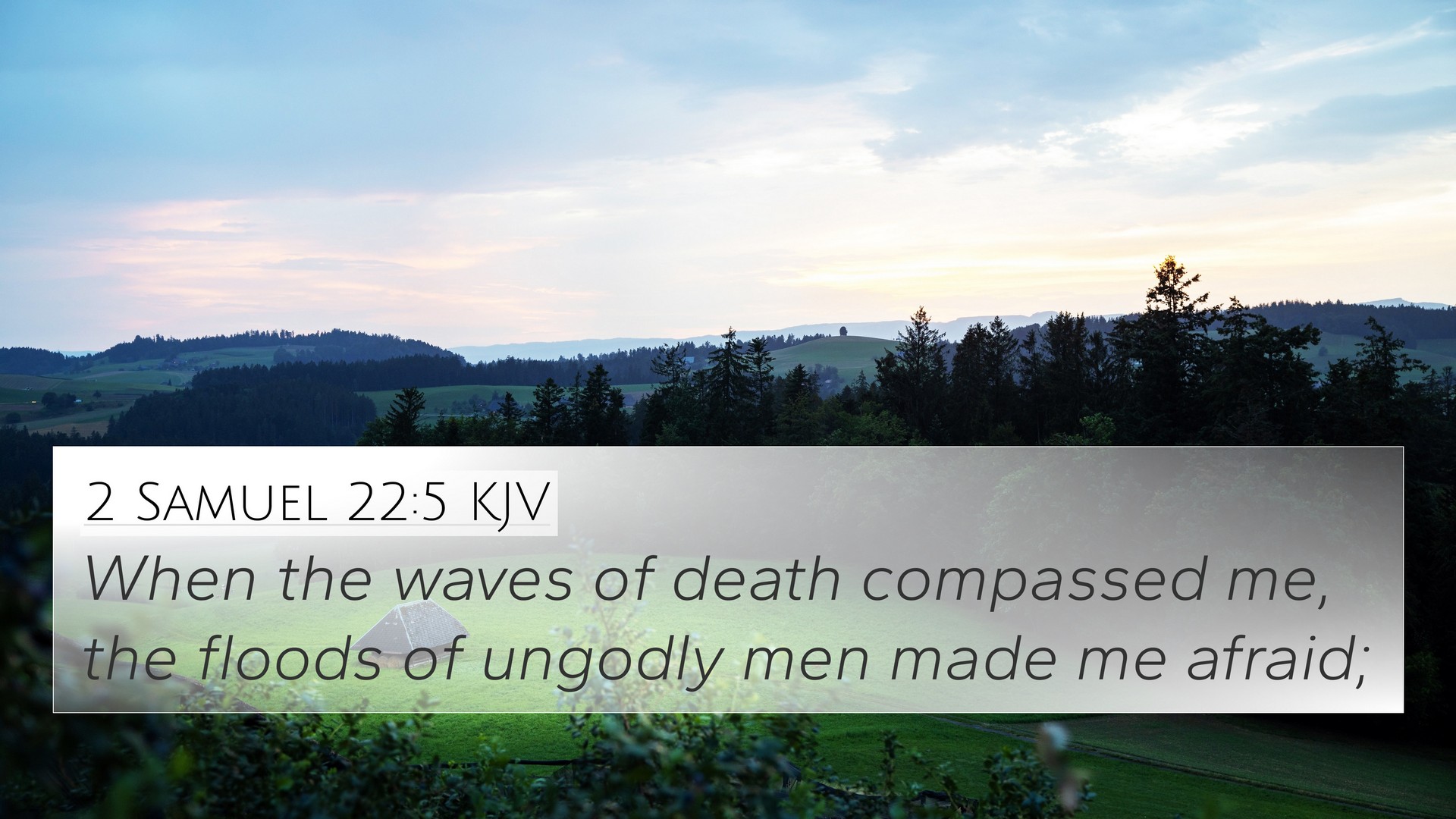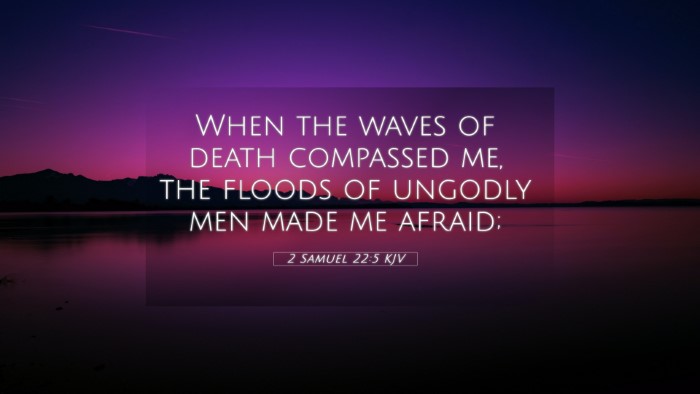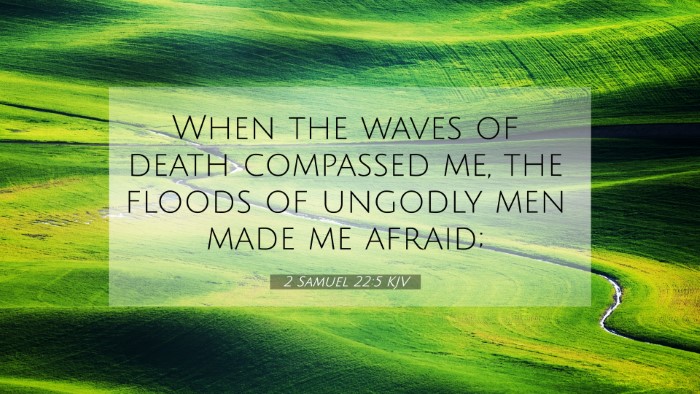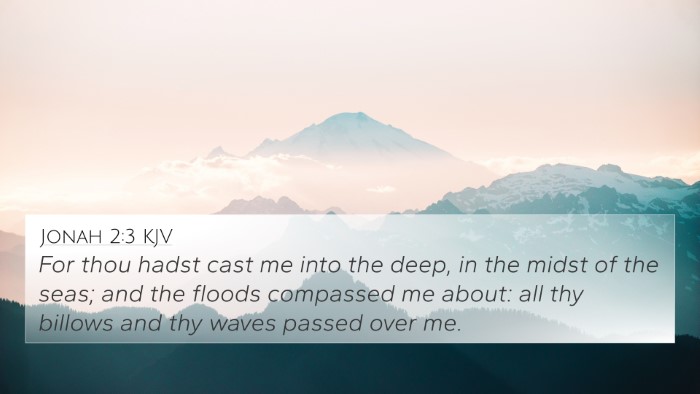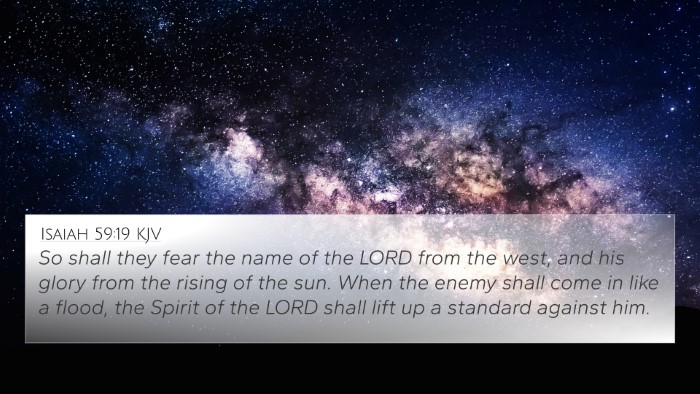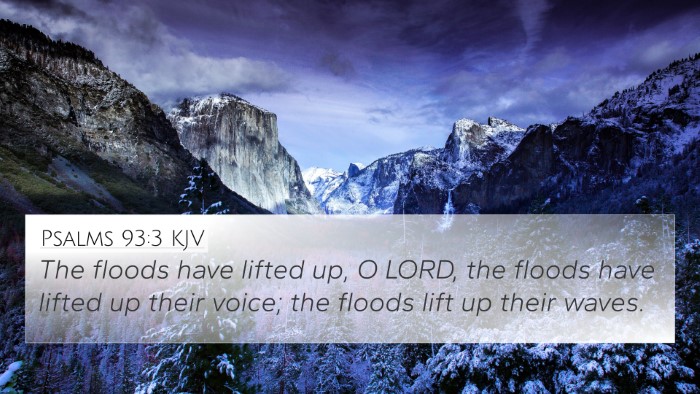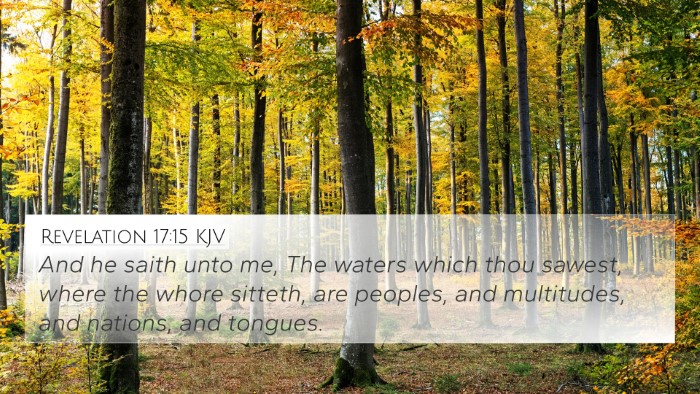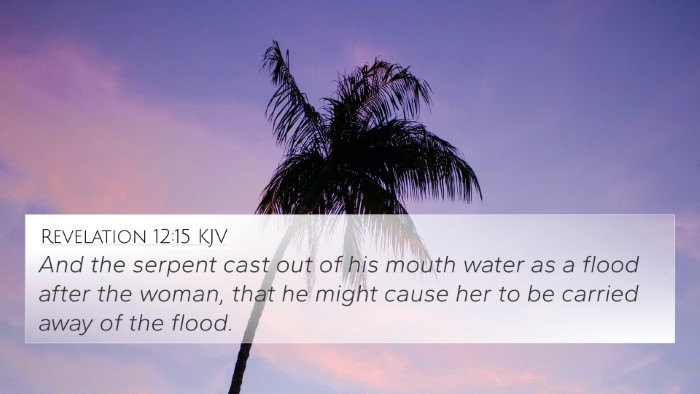Understanding 2 Samuel 22:5
2 Samuel 22:5 states, "When the waves of death surrounded me, the floods of ungodliness made me afraid." This verse captures a moment of distress and desperation, illustrating the spiritual and emotional turmoil King David endured. The imagery of overwhelming waves and floods symbolizes the magnitude of challenges faced, reflecting the trials not only experienced by David but those that resonate throughout the human condition.
Summarized Insights from Public Domain Commentaries
-
Matthew Henry:
Henry describes this verse as an expression of David’s plight, highlighting the fierce opposition he faced. He notes that the "waves of death" denote the physical dangers and threats to life, while "the floods of ungodliness" represent the spiritual and moral challenges from adversaries. This vivid imagery serves to communicate the seriousness of David’s peril while also manifesting God's deliverance.
-
Albert Barnes:
Barnes emphasizes the metaphorical use of "waves" and "floods" as potent illustrations of the overwhelming adversity. He connects this verse to the greater narrative of divine rescue, suggesting that such moments of anguish often precede divine intervention. He encourages understanding that God's deliverance is essential amid life’s tumult.
-
Adam Clarke:
Clarke interprets the "waves of death" as a representation of the grave and mortal danger, often linked to enemies pursuing one’s life. He posits that these floods symbolize both literal threats and figurative moral declines that can engulf an individual. Clarke highlights the psychological despair implied in the verse, pointing out that David's acknowledgment of fear is a relatable aspect of faith.
Contextual Understanding
This verse is situated within a song of praise by David, recounting his experiences of distress and subsequent deliverance by God. It underscores the theme of God's protection and might in moments of extreme vulnerability. In examining the cross-references, one can see parallels to other scripture that similarly addresses themes of divine intervention in the face of distress.
Bible Cross-References
- Psalms 18:4-6: This psalm echoes David’s feelings of entrapment and the need for divine rescue, highlighting similar themes of danger and deliverance.
- Psalms 69:1-3: David expresses anguish and seeks God's intervention, paralleling the fear and desperation of 2 Samuel 22:5.
- Psalms 107:23-30: This passage speaks to those who face storms and peril at sea, reflecting God's power over nature and situations of distress.
- Isaiah 43:2: This verse promises God's presence during trials, paralleling the assurance that David seeks in his time of need.
- Matthew 14:30-31: This New Testament account mirrors David's fear as Peter experiences fear on the water, illustrating faith amidst turmoil.
- Hebrews 2:14-15: In discussing Jesus' victory over death, this passage connects the themes of fear and deliverance from death.
- Romans 8:31-39: This New Testament passage assures believers of God's unshakeable support amid adversities, relating closely to the fear expressed by David.
- Revelation 21:4: God's promise to wipe away tears and eliminate death introduces a future hope that parallels David's plea during his crisis.
- Job 30:20: Job's cry in desperation reflects an emotional resonance with David's expressions of fear and abandonment.
- Psalm 46:1-3: This passage ascribes God as a refuge and strength, offering reassurance amidst turbulence, akin to David’s cry for help.
Thematic Connections
The connection of 2 Samuel 22:5 to the broader narrative of scripture reveals a common theme: God as the deliverer in times of trouble. The imagery of engulfing waters in the Old Testament often serves as an analogy for the trials encountered by the faithful. Each cross-reference strengthens our understanding of how believers throughout history have faced similar adversities and relied on God's mercy.
Practical Application for Life
In times of distress, like King David, individuals today can find solace through reflection upon these verses and their cross-references. Recognizing the shared experiences of biblical figures allows for a deeper understanding of God's unwavering support. Using tools for Bible cross-referencing can aid in personal study and sermon preparation, providing a roadmap through the interconnected narratives of the Bible.
Conclusion
2 Samuel 22:5 significant captures the essence of human vulnerability and divine salvation. Through a combined analysis of the verse and surrounding scripture, it becomes evident that regardless of the trials faced, faith can prevail. Such insights provide comfort and guidance, allowing believers to navigate their storms with faith rooted in the historical accounts of God's faithful presence.
